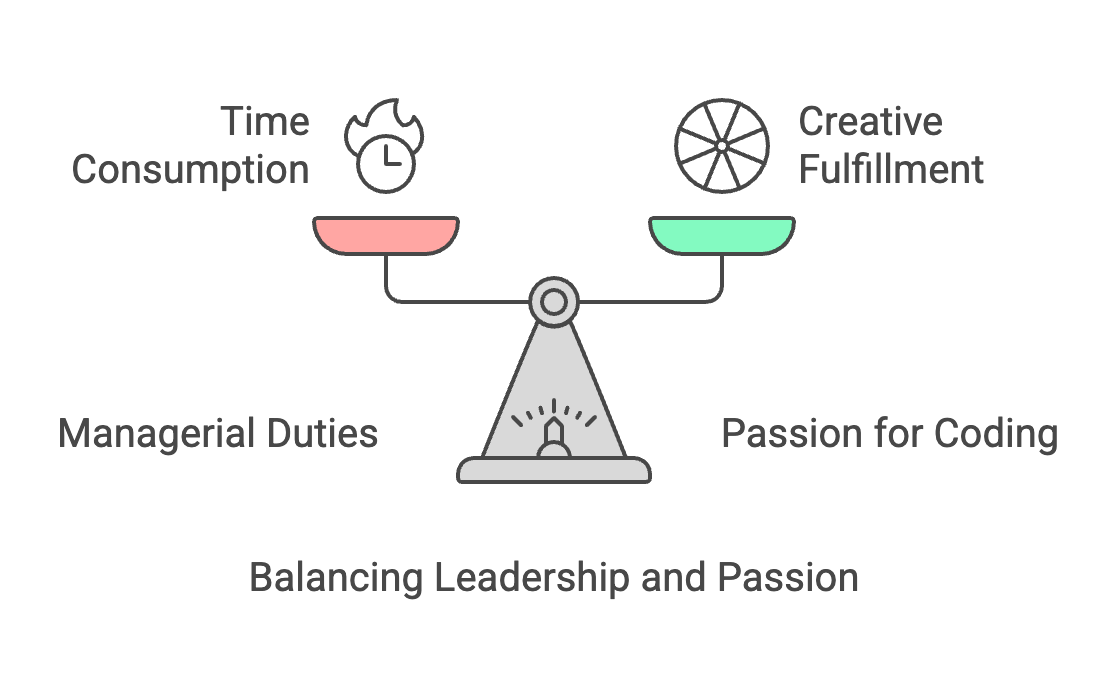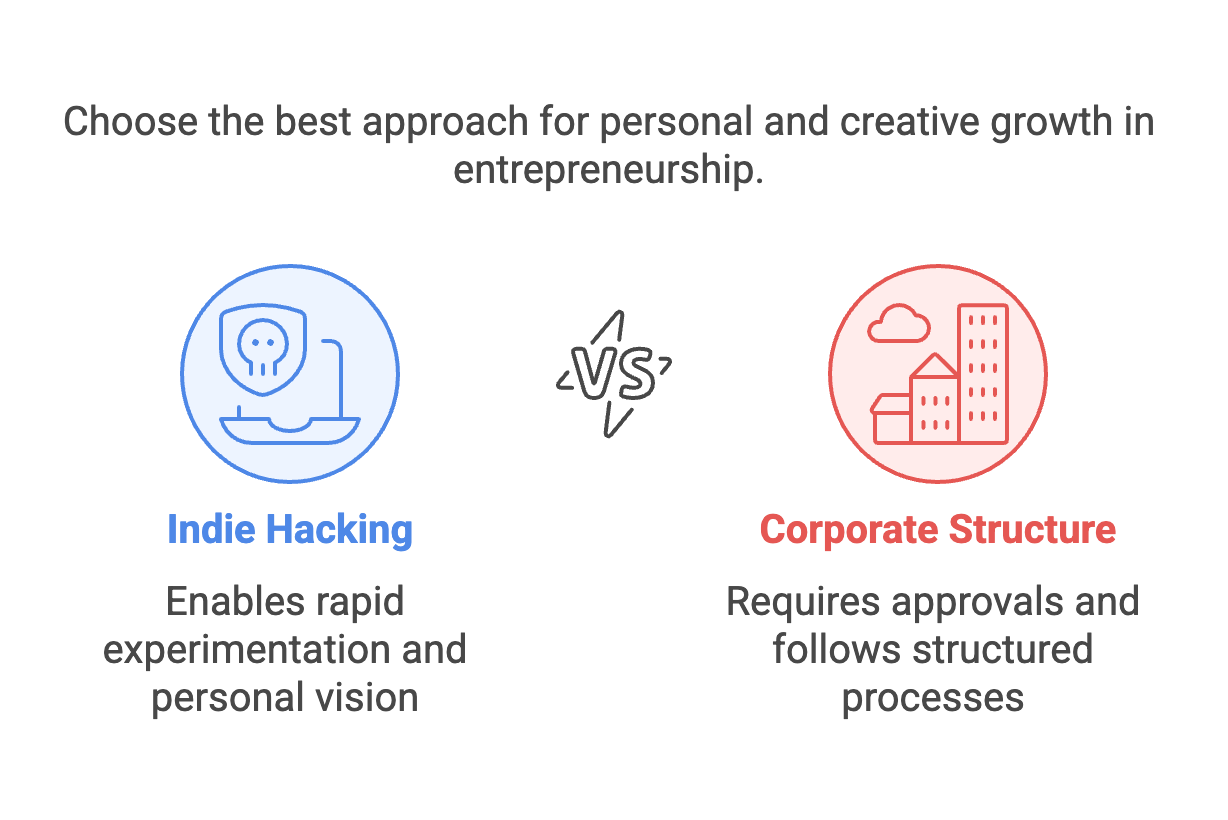Singing ‘Bob Lennon’ in a Tech World: Rekindling the Maker Flame Beyond a 200-Person Startup

If you’ve ever read 20th Century Boys created by Naoki Urasawa, you’ll recall that moment when the protagonist steps onto a modest stage, guitar in hand, to reignite hope in a world clouded by deception. That raw, electrifying spirit perfectly captures why so many of us long to become indie hackers: we crave that direct, personal connection to building something real, something rebellious—just like picking up a guitar to spark a revolution. Even after leading larger corporate teams and scaling up organizations, I’ve found myself drawn back to the simple, visceral act of creating from scratch. It’s about coding, experimenting, and living out that youthful fire that first propelled me into entrepreneurship.
1. Reigniting the Love of Building and Coding
In a large corporate environment, you inevitably get caught up in managerial duties—roadmaps, investor relations, bureaucratic processes. Before you know it, you’re more a traffic controller than a builder. Yet, there’s something exhilarating about rolling up your sleeves to write your own code and craft features exactly the way you envision them. It’s like rediscovering the reason you started this journey in the first place: a genuine love for product creation. When you’re an indie hacker, every line of code is personal. You’re back in the driver’s seat, shaping software with your own hands.
2. Recapturing Autonomy and Creative Freedom
When you answer to layers of executives or a board, it can stifle your most daring ideas. In contrast, indie hacking is all about having full creative reign—no red tape, no endless sign-offs. You set the roadmap; you pivot when your gut tells you to. This autonomy is not only liberating but also fosters rapid iteration. If you need to tear down a feature and rebuild it from scratch, you just do it. No committee approvals required. For those of us who yearn for the thrill of true ownership, it’s a breath of fresh air.

3. Lean and Agile Approach to Business
Large organizations rely on structured, often rigid systems to maintain order—there’s a process for everything. While that’s great for scaling, it can sometimes smother innovation. Indie hackers thrive by doing more with less, iterating quickly, and relying on real-world feedback rather than lengthy cycles of internal deliberation. The ability to release a rough prototype, gather user reactions, and adjust in near real-time keeps you sharp and close to your audience. It transforms product development from a labyrinth of procedures into a lean, energetic dance.

4. Cultivating a Passion Project Independent of Constraints
A big company often carries the weight of its own brand legacy, existing product lines, and investor expectations. By contrast, an indie side project (or full-time indie venture) can be anything you want it to be—from a micro-SaaS for a niche community to a novel tool that challenges industry norms. Nothing is off-limits. That freedom allows you to explore ideas that would never make it through the risk-averse lens of a big organization. When you’re the sole or primary creator, the boundaries are yours to define—or break.
5. Reconnecting With Grassroots Entrepreneurship
There’s something undeniably energizing about the scrappy, “let’s launch it ourselves” mindset. When you’re at the helm of a large structure, you can forget how addictive that early hustle felt—gathering feedback from the first handful of users, building features overnight, feeling each small win or loss with raw intensity. Indie hacking brings back that do-it-yourself, grassroots energy. You can gather a small, loyal user base who cheers you on, shares your excitement, and grows with you. It’s personal, passionate, and reminiscent of the very essence of starting something new.
6. Personal Growth and Continuous Learning
When you hold high-level roles in a big organization, you become adept at strategic thinking, resource management, and leadership. But the hands-on experience—coding a new framework, implementing UX improvements, analyzing raw performance data—can slowly fade into the background. Indie hacking forces you to wear multiple hats: developer, marketer, community manager, support lead. Yes, it’s demanding, but it also keeps you humble and continuously learning. Each struggle to debug a stubborn issue or to optimize a UI is a fresh lesson that strengthens your overall skill set.
7. Psychological Satisfaction and Ownership
Working within a large corporate structure often means your individual contribution gets diluted by the sheer scale of everything. Success is shared, and so is failure. As an indie hacker, the buck stops with you—both the glory and the blame. While that can be daunting, it also delivers an unmatched sense of fulfillment. When your product resonates with users, you feel it at a deeply personal level. It’s the difference between being a small cog in a massive machine and being the entire machine—flaws, brilliance, and all.
8. Balancing Legacy With New Ventures
Embarking on an indie journey doesn’t mean discarding everything you’ve built within a larger organization. In fact, it can complement it. Keeping a foot in the world of corporate strategy while simultaneously experimenting as an indie hacker can recharge your creativity and expose you to cutting-edge tools and trends. This dual perspective can spark innovative thinking, even in your day-to-day corporate responsibilities. Plus, it reminds you to stay grounded in the fundamentals of product development—something that’s easy to lose sight of when you’re surrounded by sprawling teams and rigid systems.
Conclusion: The Spirit That Refuses to Die
Just like in 20th Century Boys, where a single guitar and a defiant melody can reignite hope against all odds, stepping into the indie hacker arena taps into that same undying spirit of creation. It’s a statement that, no matter how big or structured your professional world becomes, there’s always a spark of rebellion waiting to break free. Each new line of code, each pivot, each tiny victory rekindles that passion that first drove you to build something entirely your own. The guitar may be replaced by a laptop, but the soul of the performance is the same: a refusal to let your fire be extinguished—and a belief that genuine creation can still transform the world.